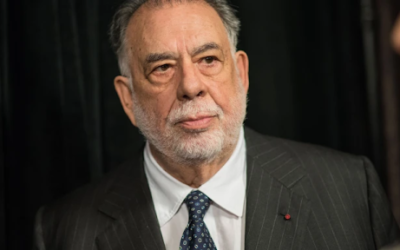Source: Deadline
It was not too long ago that the Alliance of Motion Picture and Television Producers (AMPTP) faced the possibility of a strike that could shut down a significant percentage of film and television productions throughout North America. Just before the end of 2021, the International Alliance of Theatrical Stage Employees (IATSE), one of the film industry’s largest labor unions, threatened to go on strike unless the AMPTP could agree to a new contract that would satisfy the demands being made. Although the IATSE did vote unanimously to strike should things take a turn for the worse, such an event was ultimately averted, as both groups did make a last-minute agreement on a new contract (one just barely ratified by IATSE members, since many felt the new contract did not do enough). Almost half a year later, the AMPTP faces the possibility of yet another strike, and while the opposing guild this time is not quite as large or prominent as the IATSE, it is one that could bring many major productions to a standstill. The guild in question: the Directors Guild of Canada, British Columbia.
On Monday, April 4th, it was announced that the Directors Guild of Canada, B.C. District Council, would strike against the North American film and television industry, its first time ever doing so, after over a year of trying and failing to reach a new contract with the AMPTP, after its previous one expired on March 31st, 2021. A vote among the guild’s 1,700 members (which consist not only of directors, but also second unit directors, production and unit managers, and several others employed in various directorial/production departments) to authorize a strike is set to take place on August 6th and 7th, and should the union agree to take such action (that is if an agreement with the AMPTP is not reached), film and television production throughout British Columbia would be completely shut down. Given just how many films and television shows are shot in British Columbia (especially near the city of Vancouver, the province’s largest city), this would have a much greater effect on the industry than most may assume.
According to DGC BC District Council Chairman Allan Harmon, the guild has done everything in its power to reach a fair agreement with the AMPTP, and that the only option left at the moment is to mandate a strike. “For the first time in our history, the DGC BC is calling on its members to vote in favor of a strike,” Harmon announces. “We have bargained in good faith for a full year, but the employers’ bargaining team has been unwilling to engage on our most important issues and has kept demanding more and more clawbacks throughout the process. Despite our willingness to compromise on significant issues, they kept moving the goalposts, making it impossible to get a fair deal for our people.”
Although there are many issues the DGC BC has debated with the AMPTP (as well as the Canadian Media Producers Association, or CMPA), what is currently being pushed on the table can be narrowed down to four major concerns: minimum wage differentials (basically having wage rates for lower paid positions increase alongside the national minimum wage), payment terms for COVID testing, retroactivity of wages to the expiry of the previous contract, and producer clawbacks. As of yet, neither the AMPTP nor the CMPA has proven willing to agree to any of these demands, much to the chagrin of the DGC BC. “It is incredibly perplexing and disheartening that the same studios and production companies who are actively engaged in efforts to diversify the workforce and attract folks from underrepresented groups, are, at the very same time, fighting against fair wages and treatment for our entry level employees,” claims DGC BC executive director Kendrie Upton. “These are the very jobs in which these new industry entrants will begin.”
Nothing that the AMPTP hasn’t already offered to other guilds (most notably the IATSE) is being asked for, the DGC BC claims, making the difficulty to reach a more satisfactory contract appear to be all the more unreasonable. Since the expiration of the previous contract back in March 2021, the guild has taken multiple actions to assert itself and push for a better deal, applying for mediation at the Canadian Labour Relations board back in May. Shortly afterwards, a mediator was appointed, and after receiving submissions from both parties, the mediator issued settlement recommendations in August, recommendations that seem to satisfy the DGC BC, but not the AMPTP. “The DGC BC agreed to the mediator’s recommendations in order to conclude an agreement,” the guild claims. “The Negotiating Producers rejected the mediator’s recommendations and continued to seek further concessions. The DGC BC held strong.” The AMPTP did make some concessions later on, but not nearly enough to meet the demands being made. “The Negotiating Producers’ most recent offer contains clawbacks from both the mediator’s recommendations and their prior offer,” the guild adds. “The DGC BC countered that offer; the Negotiating Producers rejected the counter without discussion. The parties are at an impasse.”
That impasse could transform into a full-on strike within the span of a couple days. Should the DGC BC vote in favor of going on strike, several of the guild’s 1,700 members could start picketing within the span of a couple days, resulting in the shutdown of several film and television productions currently operating throughout British Columbia. Given how the AMPTP was able to reach an agreement with the IATSE just hours before it was all set to go on strike, it’s certainly not outside the realm of possibility for it to do the same with another, much smaller union. Still, if what has happened so far is any indication (especially considering how this whole ordeal has been going on for over a whole year now), nothing is certain, and if this impasse isn’t resolved within the next couple days, those living in British Columbia should brace for a potential upcoming strike and shutdown.



